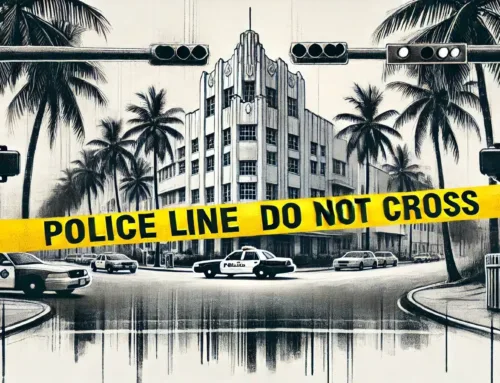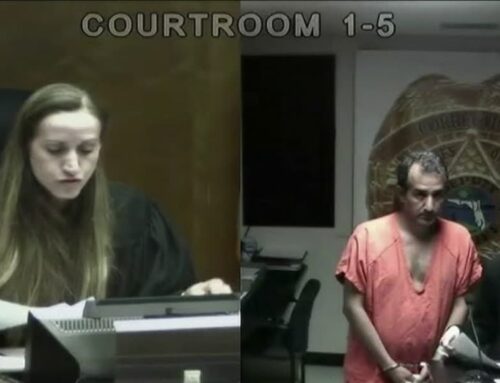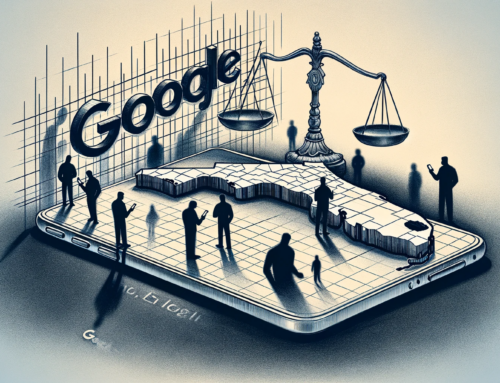The First Amendment and Criminal Law: Understanding Your Constitutional Rights
The First Amendment to the United States Constitution protects some of our most fundamental freedoms – freedom of religion, speech, press, assembly, and petition. However, these rights are not absolute, and sometimes speech or conduct that would otherwise be protected can still be subject to criminal prosecution. As a criminal defense attorney in Miami, I see many cases where my clients’ First Amendment rights come into play. In this post, I’ll provide an overview of how the First Amendment intersects with criminal law and how courts balance constitutional rights with criminal statutes.
Freedom of Speech
Freedom of speech is one of the most vital rights protected by the First Amendment. However, not all speech is protected. There are certain categories of speech that may be criminally prohibited or regulated by the government. These include:
True Threats
Speech that constitutes a “true threat” against another person is not protected by the First Amendment. A true threat means a statement that a reasonable person would understand as a genuine threat of violence or bodily harm. True threats can be prosecuted as crimes like harassment, terroristic threats, or assault.
Incitement of Illegal Activity
The First Amendment does not shield speech that incites imminent criminal conduct. This means directly advocating for others to engage in lawless action right away. Classic examples include urging an angry mob to riot or addressing a crowd to immediately obstruct traffic. Incitement charges are rare but possible for the most dangerous and provocative calls to criminal action.
Fighting Words
Face-to-face personal insults likely to provoke an immediate violent reaction from the listener may fall into the “fighting words” category. Fighting words are not protected speech and may justify charges like disorderly conduct or breach of peace. However, this doctrine is narrowly applied, and such words must present a clear and present danger of immediate violence.
Defamation
While the First Amendment provides broad protections for speech, it does not protect defamatory statements, meaning false statements of fact that injure a person’s reputation. If speech falsely accuses someone of a crime, professional misconduct, sexual deviance, or other traits likely to subject them to hatred or contempt, it can lead to civil liability for defamation or even theoretically criminal libel charges.
Obscenity
Obscene speech or materials fall outside First Amendment protection according to the Supreme Court’s Miller test. To be legally obscene, speech must appeal to prurient interests in sex, portray sexual conduct in an offensive way, and lack any literary, artistic, political, or scientific value. Distribution or possession of obscene materials may justify obscenity charges. However, this excludes indecent but not obscene sexual content.
Child Pornography
Visual depictions of sexual conduct involving minors constitute child pornography, which is not protected by the First Amendment. Federal and state child porn laws prohibit the creation, distribution, and possession of child pornography. However, lawful depictions of mere nudity involving minors may still be protected.
In sum, while the First Amendment provides strong protections for free speech, there are exceptions where speech crosses the line into threatening, inciting, defamatory, or pruriently obscene communications subject to legitimate criminal regulation. However, these categories are narrowly defined, and any criminal statute must be carefully drafted to avoid infringing on constitutional rights.
Freedom of Assembly
The First Amendment also protects freedom of assembly, which encompasses protests, demonstrations, rallies, and other forms of organized public gatherings. However, the government can impose reasonable restrictions on the time, place, and manner of assemblies. Permits may be required for large gatherings or marches blocking roadways.
Peaceful, lawful assemblies are constitutionally protected. However, criminal charges may result from:
- Unlawful assembly – When a group threatens violence or illegal activity. Police may order dispersal.
- Failure to disperse – When a person refuses to leave after police declare an unlawful assembly.
- Disorderly conduct – When an individual causes public disruption at a protest or rally.
- Obstruction of traffic – When protesters intentionally block roadways without a permit.
- Rioting – When a protest escalates into dangerous group violence against persons or property.
While the First Amendment protects the right to assemble and air grievances, police may step in if protests turn violent or threaten imminent danger.
Balancing First Amendment Rights in Criminal Cases
In criminal cases involving First Amendment issues, courts use constitutional doctrines like the strict scrutiny test to balance free speech/assembly rights against government interests:
- The law or restriction must further a “compelling” government interest – usually protecting public safety, order, health, or morals.
- The law must be “narrowly tailored,” using the least restrictive means to achieve the interest.
- The law must be “viewpoint neutral” and not target specific messages or ideas.
For content-based speech restrictions, courts apply strict scrutiny to protect against censorship. Content-neutral “time, place, manner” regulations only need to be reasonable and justified without reference to content.
When freedom of assembly is involved, courts may consider things like the intended venue, the number of participants, and any public safety issues. Overall, courts try to uphold First Amendment principles while allowing narrowly crafted restrictions when essential to prevent danger or criminal conduct.
Asserting Your Rights During Criminal Proceedings
Here are some ways First Amendment rights may arise during criminal prosecutions:
Investigations
- Asserting free speech rights if questioned about political or religious activities.
- Not being compelled to disclose memberships in activist or political groups.
Charges
- Challenging charges like disorderly conduct based on lawful protest activities.
- Asserting free press rights as a journalist charged while covering unrest.
Defense Arguments
- Arguing against obscenity or child porn charges by claiming artistic value.
- Maintaining material was not a true threat and is protected speech.
Sentencing
- Avoiding sentencing enhancements based on political, social, or religious affiliations.
- Objecting to probation terms limiting free speech or assembly rights.
Appeals
- Appealing convictions due to trial errors impairing First Amendment rights.
- Challenging the constitutionality of laws infringing protected freedoms.
Contact an Experienced Criminal Lawyer
The First Amendment provides vital protections when facing criminal prosecution, but not every case involves clear violations. Never assume your rights are absolute. Seek experienced legal counsel if your freedom of speech, expression, or assembly is threatened by criminal charges.
CALL US NOW for a CONFIDENTIAL INITIAL CONSULTATION at (305) 538-4545, or take a moment to fill out our confidential and secure intake form.* The additional details you provide will greatly assist us in responding to your inquiry.
*Due to the large number of people who contact our law office requesting our assistance, it is strongly suggested that you take the time to provide us with specific details regarding your case by filling out our confidential and secure intake form. The additional details you provide will greatly assist us in responding to your inquiry promptly and appropriately.
THERE ARE THOUSANDS OF LAW FIRMS AND ATTORNEYS IN SOUTH FLORIDA. ALWAYS INVESTIGATE A LAWYER’S QUALIFICATIONS AND EXPERIENCE BEFORE MAKING A DECISION ON HIRING A CRIMINAL DEFENSE ATTORNEY ATTORNEY FOR YOUR MIAMI-DADE COUNTY CASE








